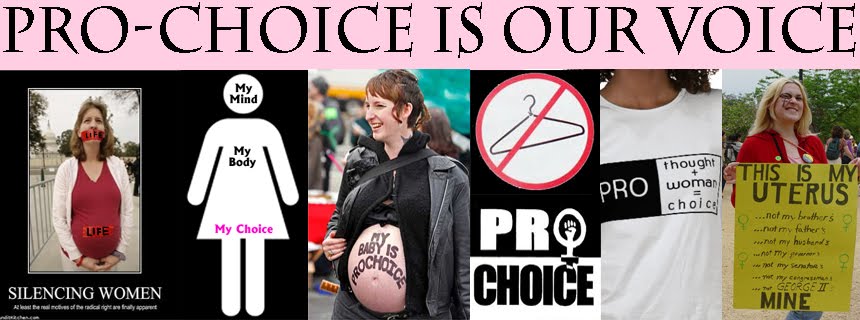1. Myth: Having an abortion means you can't get pregnant again, or that you will have serious trouble getting pregnant again.
Fact: Abortion is "twice as safe as getting your tonsils removed" (1) and has no negative effects on the reproductive organs of the woman. If she wants to get pregnant again later, there is no medical reason why she should not be able to. There is no "scar tissue" that builds up and makes it more difficult to get pregnant again, if an abortion is done correctly, even after multiple abortions (2). Abortion that is performed during the first 12 weeks of pregnancy is one of the safest surgical procedures (3). The most dangerous type of abortion is an illegal one, performed by someone who is untrained and doing the procedure under the table (in instances where abortions were not legal in our country in the past, for example, or in countries where abortion is not legal).
2. Myth: Having an abortion puts the woman at a much higher risk for breast cancer.
Fact: The National Cancer Institute put this one to rest in 2003 when they had over 100 experts on pregnancy and breast cancer come together (2), and one of the things they found was that "Induced abortion is not associated with an increase in breast cancer risk." (Quote came directly from the website). Medical fact does not support this claim, which is a myth that anti-abortion zealots peddle around to scare women away from considering abortion.
3. Myth: Having an abortion will give you "Post-Abortion Stress Syndrome".
Fact: Many women do not experience any sort of long-term trauma after having an abortion. Every woman experiences abortion differently; there is no one definitive reaction to an abortion, and having an abortion does not guarantee psychological problems. Instead, most studies have found that the most prevalent emotion women feel after having an abortion is relief (1, 2). There are other emotional factors that can contribute to feelings of grief or sadness or loss after an abortion: the thing to remember is that if a pregnancy was unwanted, there was likely a lot of emotional stress connected to the situation to begin with that can be confused with emotional stress about the abortion (3). Planned Parenthood says that 20 percent of women experience feelings of depression after an abortion that pass quickly, but then so do 70 percent of women who have just given birth--and that these feelings are related to large fluctuations in hormones that occur after either experience (1). NAF has collected a lot of research about this myth, which can be found on their page specifically devoted to refuting this myth with medical and psychological research.
These are the three biggest medical myths that I found (that were also presented as truths on anti-abortion websites) when researching this topic. Fortunately there is medical and scientific information out there that is readily available for any woman who should want to know the truth. She doesn't even have to take Planned Parenthood or NAF's word for it: the studies are out there. The only problem is that some organizations don't encourage women to seek the information, but rather scare them or push them around with an agenda.
Sources:
--Alexandra

No comments:
Post a Comment